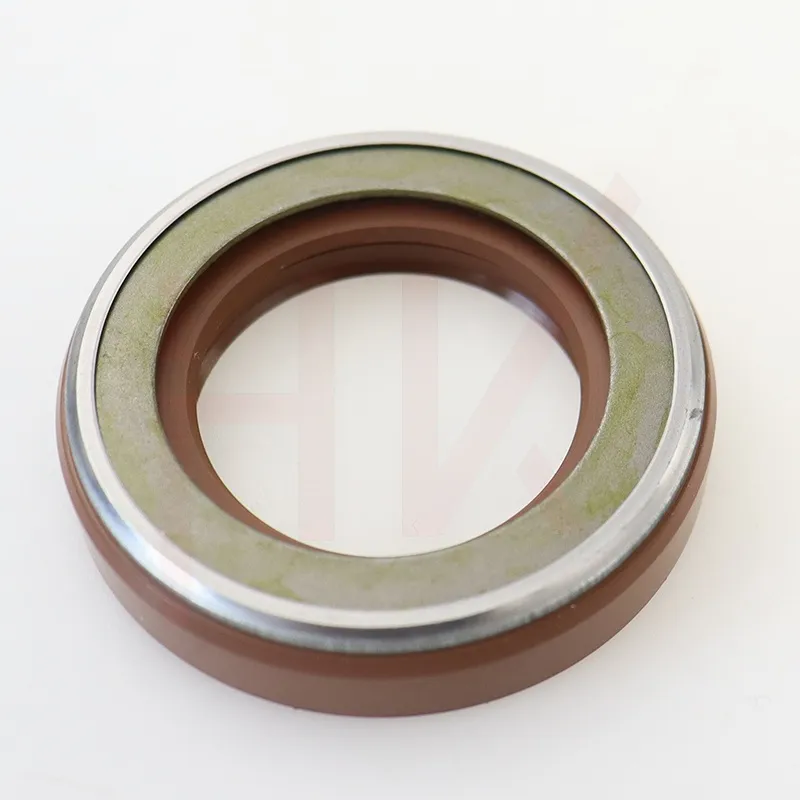Nov . 14, 2024 05:30 Back to list
shaft wiper seal
Understanding Shaft Wiper Seals Essential Components in Mechanical Systems
In mechanical engineering, the performance and longevity of machinery are often determined by the efficiency of its sealing solutions. One such crucial component is the shaft wiper seal. These seals play an integral role in preventing contamination and maintaining the operational integrity of rotating shafts in various applications, including hydraulic systems, industrial machinery, and automotive components.
What is a Shaft Wiper Seal?
A shaft wiper seal is a type of sealing device designed to wipe away contaminants and prevent them from entering a housing where a rotating shaft is present. Typically made from elastomers or other durable materials, these seals are positioned at the point where the shaft exits a housing. Their primary design function is to provide an effective barrier against dirt, dust, moisture, and other foreign particles that could jeopardize the performance of the machinery.
How Do Shaft Wiper Seals Work?
The operation of a shaft wiper seal is relatively straightforward. As the shaft rotates, the wiper seal, which usually features a flexible lip, lightly contacts the surface of the shaft. This contact creates a scraping or wiping action that effectively removes any debris or contaminants that might otherwise accumulate at the shaft's exit point. By doing so, wiper seals help ensure a clean and lubricated surface, thereby facilitating smooth operation and preventing wear on both the shaft and the housing.
The design of the seal can vary based on its intended application. Some wiper seals come equipped with additional features, such as drainage channels that allow collected contaminants to escape rather than build up around the shaft, which could impede rotation and lead to premature failure.
Importance of Shaft Wiper Seals
The significance of incorporating shaft wiper seals in mechanical systems cannot be overstated. Here are some key benefits
1. Protection Against Contamination By effectively keeping out dirt, dust, and moisture, wiper seals greatly enhance the longevity and reliability of machinery. Contaminants can lead to increased friction, wear, and even catastrophic failures, which can be costly in terms of repair and downtime.
shaft wiper seal

2. Reduced Lubrication Loss Wiper seals help maintain the lubrication within the housing by preventing it from leaking out. This is especially important in hydraulic systems where hydraulic fluid is critical for operation. Keeping fluids in place not only ensures the system works correctly but also aids in cooling and lubrication.
3. Maintenance and Cost Efficiency Regular maintenance and replacement of seals can prevent more significant issues down the line. Wiper seals are often less expensive than the costs associated with repairing or replacing damaged components due to contamination. Their role in preventative maintenance can save organizations time and money.
4. Versatility Shaft wiper seals are used in a wide array of applications, from heavy machinery and agricultural equipment to automotive systems. This versatility makes them an essential component in various industries, ensuring that operations remain efficient and effective across different contexts.
Selecting the Right Shaft Wiper Seal
When selecting a shaft wiper seal, several factors must be considered to ensure optimal performance
- Material Compatibility The material of the seal should be compatible with the operating environment, including the types of fluids and temperatures involved.
- Shaft Size and Speed The seal must be appropriately sized for the shaft and its operational speed. Seals that are too loose may allow contaminants to enter, while those too tight could create excessive friction, leading to premature wear.
- Environmental Conditions The specific conditions under which the machinery operates—such as exposure to extreme temperatures, pressures, or chemicals—can influence the choice of seal.
Conclusion
Shaft wiper seals, though often overlooked, are essential components that contribute significantly to the efficiency and durability of mechanical systems. By understanding their function and importance, engineers and maintenance professionals can better appreciate the role that these seals play in preventing contamination and ensuring the longevity of machinery. Investing in quality shaft wiper seals and incorporating proper maintenance practices can lead to improved operational reliability and cost savings over time.
-
TCN Oil Seal Metal Ring Reinforcement for Heavy Machinery
NewsJul.25,2025
-
Rotary Lip Seal Spring-Loaded Design for High-Speed Applications
NewsJul.25,2025
-
Hydraulic Cylinder Seals Polyurethane Material for High-Impact Jobs
NewsJul.25,2025
-
High Pressure Oil Seal Polyurethane Coating Wear Resistance
NewsJul.25,2025
-
Dust Proof Seal Double Lip Design for Construction Equipment
NewsJul.25,2025
-
Hub Seal Polyurethane Wear Resistance in Agricultural Vehicles
NewsJul.25,2025
-
The Trans-formative Journey of Wheel Hub Oil Seals
NewsJun.06,2025
Products categories
















